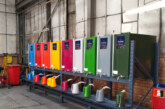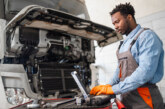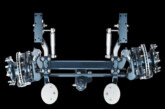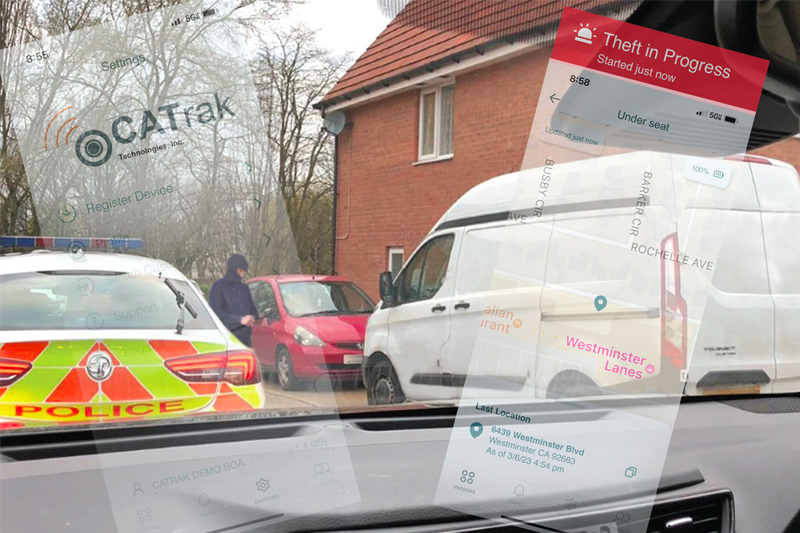
Thieves targeting catalytic converters is a big issue for UK fleet operators. One US company claims to have an answer in CATrak, so CVW asked its boss to talk us through it.
Catalytic converters contain palladium, platinum and rhodium, which is twice as valuable as gold. Thieves either break the converter open to remove the precious metal component or sell the catalytic converter for recycling for up to £650.
“Converters can be stolen in less than two minutes and enormous losses are being borne by insurance companies and fleet operators, as well as the disruption and loss of revenue from vehicles being undriveable,” says John Rollins. Rollins is the co-founder and chief operations officer of CATrak Technologies, which is marketing CATrak, an anti-theft device specifically designed to deal with this issue.
According to him, CATrak is the only anti-theft device that notifies the owner of a theft in progress. The device not only sets off a deafening 140dB alarm – the equivalent to a gunshot going off in your ear – but notifies the fleet manager or owner on the GPS location of the targeted vehicle.
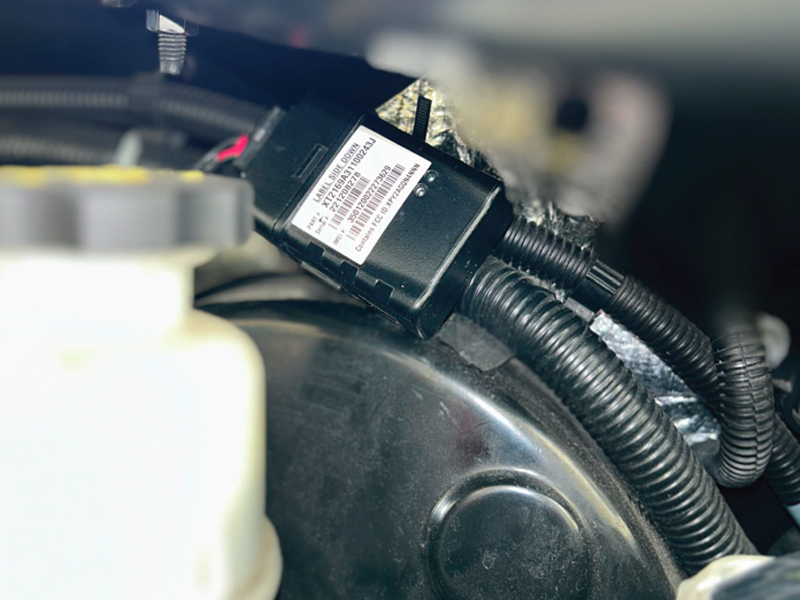
Scaleable solution
The system includes a CATrak module installed on the vehicle, along with a separately mounted alarm and custom cutdetect module (CDT). Any attempt to steal the converter will involve cutting either the converter itself or its wiring harness. Once that happens, the alarm goes off and whoever is responsible for the vehicles is notified of the theft in progress via the CATrak app.
The CATrak was developed with fleet in mind so the app can be set up to monitor any number of vehicles, all uniquely identified. An unlimited number of users can use the app to ‘keep watch’ so, for example, the app could link to the gatehouse and traffic office, alerting staff on their control screens.
The CATrak secure portal enables an unlimited number of users, with various security functions, to investigate or notify security services and any preselected contacts of a theft directly via the app.
Rollins argues that this type of protection is far superior to conventional anti-theft devices. “Passive anti-theft devices rely on physical barriers such as plates, cages and straps,” he says. “These devices slow thieves down but do not prevent them as thieves are increasingly proficient at removing barriers and using saws that cut directly through them. They also slow down vehicle maintenance because they usually need to be removed when you service or repair the vehicle.”
Despite the device being developed in the US, the company has decided to launch it in the UK because we apparently have a far worse problem – for once we are ahead of the US!
“We decided to launch in the UK as thefts are reported to be 10 times higher than in North America,” Rollins explains. “Criminal gangs are targeting vehicle depots and that’s why we’ve developed a system that allows each device with vehicle ID to be paired with the mobile app. Should a theft be attempted, any designated person can immediately see which vehicle is being tampered with, where it’s located, and take immediate action to prevent it.”
More than 97,000 catalytic converters were stolen from the beginning of 2020 to 30 November 2022, according to OPAL, the National Intelligence Unit for Serious Organised Acquisitive Crime. There may well be a similar number of unreported thefts, so there are likely to be hundreds of thefts and attempted thefts a day.
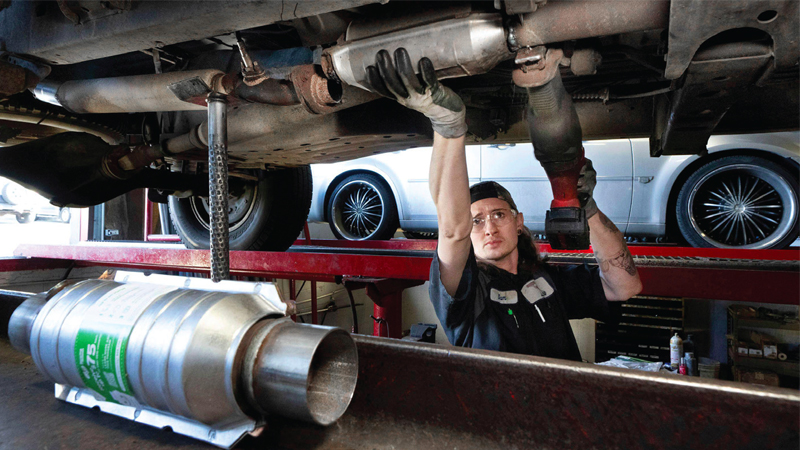
The whole problem seems to prove the old saying that “no good deed goes unpunished” because the most desirable vehicles are the ones that are most environmentally friendly and comply with low emission legislation – hybrid vehicles. Hybrid catalytic converters have a higher concentration of precious metals to start with but they are also used less than a full diesel or petrol-engine vehicle, so the precious metals corrode less and so are worth more. And that puts fleet operators in the front line, Rollins argues.
“Fleet operators are switching to low emission vehicles. This is not just because of the need to reduce carbon footprints – and the fact that petrol is now considerably cheaper than diesel – but more and more UK cities are introducing low emission zones,” he says. “Vehicles that are exempt from charges, like hybrids, have converters that are worth more, so criminal gangs now see company car parks and vehicle depots as easy pickings.”
Even trucks are not immune, according to Rollins – and not just because they are higher from the ground and so easier to access. He points out that an oxidation catalyst can be integrated with the diesel particulate filter (DPF) and these are also being stolen for scrap.
“Even though HGV diesel catalytic convertors don’t contain precious metals, they are a very expensive spare part that can cost up to £3,500 and may often be stolen to order,” he says.
Whether it is worth protecting an entire fleet with such a sophisticated device as the CATrak will depend on a lot of variables – where the fleet is kept, where it delivers and whether insurance premiums will reflect the lower risk, for example. Yet it is another weapon in the fleet manager’s armoury to keep the show on the road.






